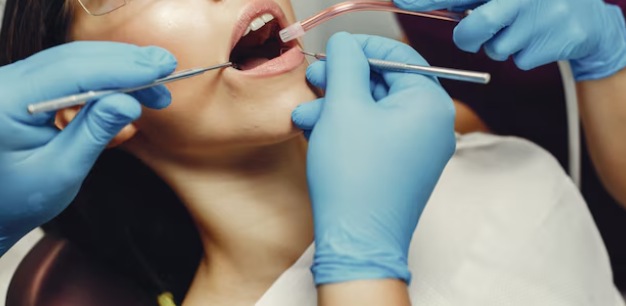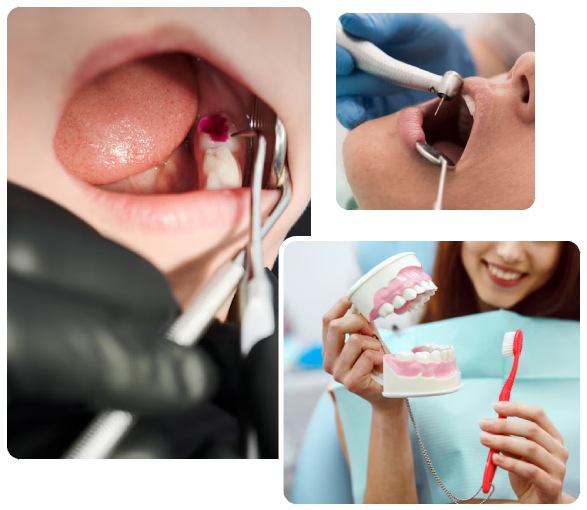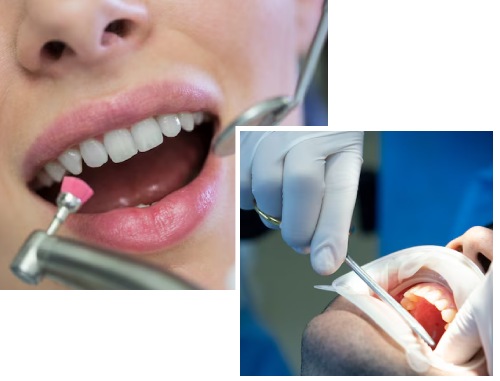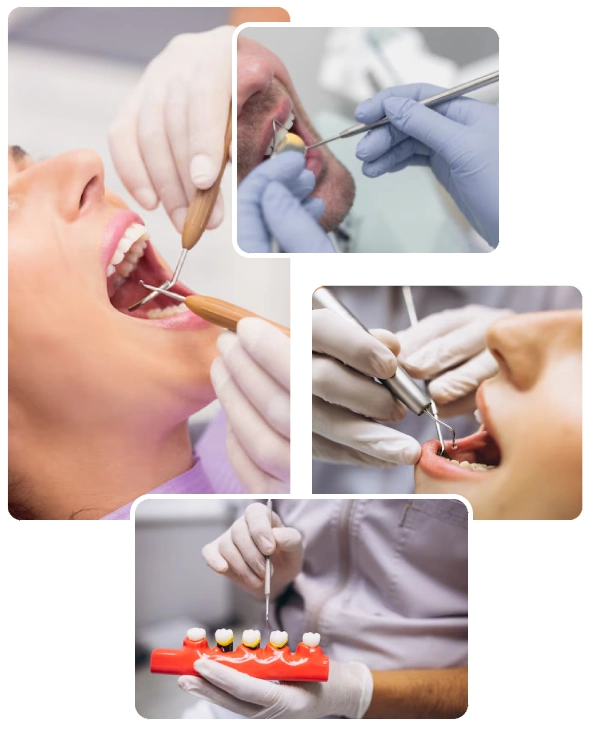Advanced Gum Treatment (Periodontitis) Clinic in Newtown, Kolkata

What is Advanced Gum Treatment?
Signs of Advanced Gum Disease (Periodontitis)
- Swollen or puffy gums
- Gums that appear bright red, dark red, or dark purple
- Tenderness when gums are touched
- Gums that bleed easily
- Pink-tinged toothbrush after brushing
- Spitting out blood when brushing or flossing
- Persistent bad breath
- Pus between the teeth and gums
- Loose teeth or tooth loss
- Pain while chewing
- New gaps between teeth
- Receding gums, making teeth appear longer
- Changes in how teeth fit together when biting


Causes of Advanced Gum Disease (Periodontitis)
- Hormonal changes during pregnancy, puberty, menopause, and menstruation make gums more sensitive, promoting the development of gingivitis.
- Diseases like cancer, HIV, and diabetes raise the risk of infections, including periodontal disease.
- Certain medications reduce saliva production, which protects teeth and gums.
- Smoking hampers the ability of gum tissue to heal.
- Poor oral hygiene, like not brushing and flossing daily, contributes to gingivitis.
- A family history of dental disease increases the likelihood of gum disease.
Contact the best advanced gum treatment clinic in Newtown, Kolkata for comprehensive treatment.
Diagnosis of Advanced Gum Disease (Periodontitis)
- Asking about your symptoms and medical history
- Examining your gums for signs of inflammation
- Using a periodontal probe to check for pockets around your teeth (a painless test)
- Taking dental X-rays to assess bone loss


Types of Advanced Gum Disease (Periodontitis) Treatment
Non-Surgical Periodontitis Treatments
-
Antibiotics:
The dentist may prescribe oral antibiotics or place a topical antibiotic under your gums to target infection directly.
-
Scaling and Root Planing:
This deep dental cleaning is considered to be one of the best treatments for advanced gum disease and helps remove bacteria from beneath the gum line to prevent future plaque buildup. The procedure is performed under local anaesthesia and may require multiple visits. A follow-up appointment after a month is essential to assess progress.
Surgical Periodontitis Treatments
-
Flap Surgery:
In this advanced dental treatment for gums, the periodontist lifts your gum tissue to thoroughly clean the tooth roots and re-contour the bone if necessary, making future cleanings easier and reducing infection risk.
-
Dental Bone Grafts:
If significant bone loss has occurred, bone-grafting material is placed to support new bone growth, reducing the risk of tooth loss and infection.
-
Gum Grafts:
Gum recession exposes tooth roots. To restore lost tissue, a graft from your palate is placed around the teeth, improving appearance and reducing further recession.
-
Guided Tissue Regeneration:
A biocompatible membrane is placed between existing bone and tooth to encourage bone regrowth and prevent unwanted tissue from filling the area.
-
Platelet-Rich Plasma (PRP):
PRP, derived from your blood, is used to regenerate lost bone or gum tissue by promoting healing and growth in deficient areas.
